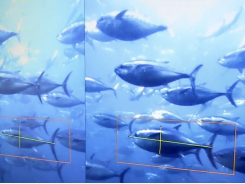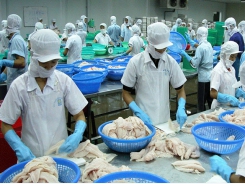Microplastics found in a majority Oregon-harvested shellfish, study finds

A Portland State University study has shown that microplastics –tiny fragments of plastic less than five millimeters in length – have been found in the vast majority of shellfish harvested on the Oregon coast.
The shellfish analyzed were from all parts of the state, from close to the border with Washington to just north of the California border, to more than two dozen additional sites in between. Some 300 oysters and razor clams were collected during the spring and summer of 2017 to be studied. Off the 300 samples, 298 of them had at least some microplastic content. An average of 11 pieces of microplastic were found in the oyster specimens and an average of 9 was found the razor clam specimens.
According to the study, many of these microplastics came from synthetic fibers used in clothing such as yoga pants and fleeces. Other bits of plastic have been traced back to old fishing lines and nets.
Some 700,000 microplastic fibers can be shed per load of laundry, according to The Oregonian. The fibers are too small to be filtered at waste water plants and often wind up back in the ocean where they are consumed by shellfish and fish, some of which are harvested for human consumption.
“Whether it was a fairly urban site or a rural site, estuary or open-coast beach, both species had microplastics,” Portland State University Professor of Environmental Science and Management Elise Granek said. “Although we think of the Oregon coast as a much more pristine coastline compared to California, Puget Sound or the Eastern Seaboard, when we are talking about microplastics, we’re still seeing that human footprint on even our more pristine coastline.”
Granek says more research needs to be done on the effects of microplastics on the organisms which consume them. Some initial studies have suggested that they could interfere with shellfish growth and reproduction.
Có thể bạn quan tâm
Phần mềm

Phối trộn thức ăn chăn nuôi

Pha dung dịch thủy canh

Định mức cho tôm ăn

Phối trộn phân bón NPK

Xác định tỷ lệ tôm sống

Chuyển đổi đơn vị phân bón

Xác định công suất sục khí

Chuyển đổi đơn vị tôm

Tính diện tích nhà kính

Tính thể tích ao hồ




 5 Approaches to Making Aquaculture Sustainable
5 Approaches to Making Aquaculture Sustainable  Study finds widespread seafood fraud in Canadian cities
Study finds widespread seafood fraud in Canadian cities